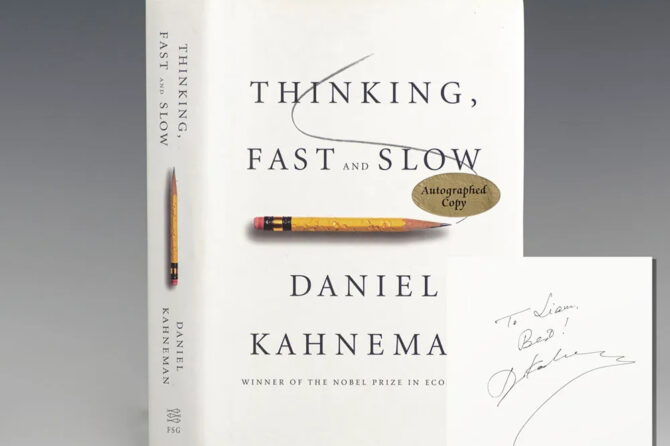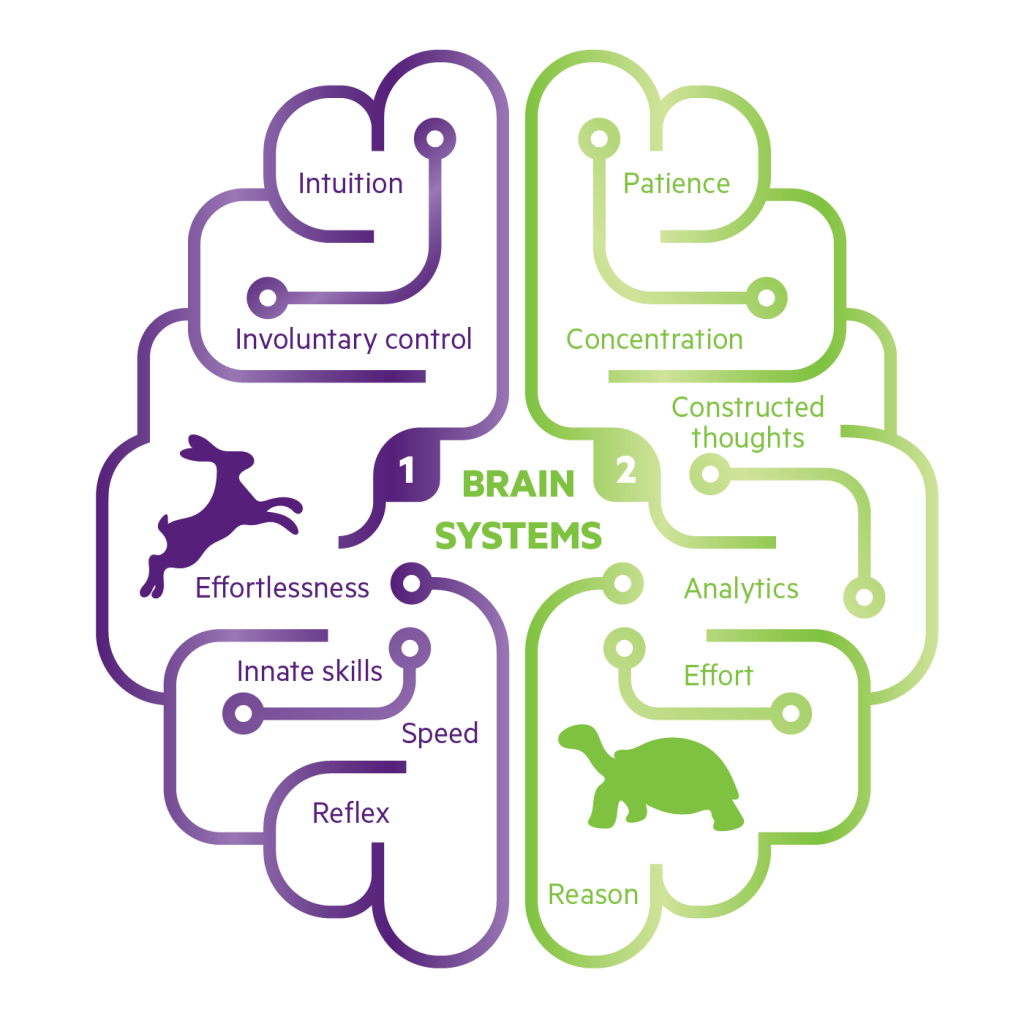
As a voracious reader, I pride myself on my ability to digest books at an impressive pace. Yet, some texts possess a unique “Vyasa effect,” forcing me to slow down and savour their profound insights. Daniel Kahneman’s “Thinking, Fast and Slow” falls firmly into this category. Although my initial excitement tempted me to rush through its pages, I soon recognized the wisdom in savouring each chapter, allowing the profound concepts to settle and resonate within me.
Kahneman’s Background and Achievements
Daniel Kahneman, an Israeli-American psychologist and Nobel laureate, has revolutionized our understanding of human decision-making through his ground-breaking research on cognitive biases. These systematic errors in our thinking often lead to irrational choices, impacting fields like psychology, economics, finance, and law. Born in Tel Aviv and educated at Berkeley, Kahneman has received numerous awards, including the Nobel Memorial Prize in 2002, solidifying his position as a leading expert in human behaviour and decision-making. His notable works such as “Thinking, Fast and Slow,” “Prospect Theory,” and “Heuristics and Biases” continue to shape our understanding of the human mind and its complexities.
The Dual-System Framework
The book meticulously dissects the two systems that govern our thinking: System 1, the fast, intuitive, and emotional, and System 2, the slower, deliberate, and logical. This framework provided a breathtakingly clear lens through which I could observe my own thought processes. As Kahneman delved into the fascinating realm of cognitive biases, I found myself exclaiming, “Yes! This is exactly what I’ve been experiencing!” His meticulously researched experiments and insightful explanations confirmed my intuitive understanding of human behaviour, while simultaneously illuminating the intricate workings of the mind.
Kahneman aptly summarizes the power of System 1 in the following quote: “System 1 is fast, intuitive, and emotional. It operates automatically and largely unconsciously, and it is the source of many of our judgments and decisions.” Conversely, System 2 is described as “slow, deliberative, and logical. It requires effort and attention, and it is the source of our more considered judgments and decisions.”

Challenging Conventional Understanding of Free Will
One of the most striking aspects of the book is its ability to challenge our preconceived notions about free will and decision-making. The concept of “priming,” where subtle cues unconsciously influence our choices, forces us to re-evaluate our belief in our own agency. As Kahneman states, “The most important discovery of the last 20 years in the study of the mind is that the vast majority of our thoughts, feelings, and decisions are made automatically, without any conscious effort or awareness.”
Potential for Cognitive Development
Furthermore, the book explores the limitations of System 1 and the potential for mental training. Kahneman demonstrates how activities that initially require conscious effort can eventually become effortless intuitions, empowering us to overcome cognitive biases and improve our decision-making. This concept resonates with the following quote: “The good news is that it is possible to learn to be less susceptible to some common biases. With practice and awareness, we can learn to identify and counteract the influence of System 1, allowing us to make more rational and informed decisions.”
Personal Reflections and Self-Discovery
Beyond its intellectual stimulation, “Thinking, Fast and Slow” offered a deeply personal journey of self-discovery. As I delved into the complexities of human cognition, I gained a profound understanding of my own strengths and weaknesses. Recognizing my vulnerability to various biases became both a humbling and empowering experience. It instilled a newfound sense of responsibility for my own choices, while also prompting a compassionate acceptance of the inherent limitations of human thought.
The Power of Slow Thinking
Kahneman elucidates the often underestimated power of slow, deliberate thinking. In a world that prizes speed and efficiency, the book is a reminder of the value of pausing and reflecting. He writes, “The ability to think may be our most distinctive human trait, but it is not our most reliable one.” This perspective emphasizes the importance of engaging System 2 to enhance the quality of our judgments and decisions.
Implications for Decision-Making and Policy
The book’s implications extend beyond personal cognition to decision-making in various professional realms. Kahneman’s insights have the potential to influence policies and practices in economics, healthcare, education, and more. Understanding cognitive biases is crucial for leaders and policymakers to make informed, rational decisions that impact society.
The Role of Intuition and Rationality
Kahneman’s analysis of intuition versus rationality in decision-making is particularly striking. While intuition can be powerful and efficient, it is prone to errors. On the other hand, rational analysis, though slower and more effortful, leads to more reliable outcomes. Balancing these two modes of thought is key to effective decision-making.
Cognitive Biases and Their Impact
The book delves into various cognitive biases such as overconfidence, framing effects, and the illusion of understanding. Kahneman’s detailed examination of these biases helps readers recognize and mitigate their influence. He aptly points out, “What we see is all there is,” highlighting our tendency to jump to conclusions based on limited information.

Summary: A Transformative Read
In sum, “Thinking, Fast and Slow” has profoundly impacted my perspective on the human mind, decision-making, and free will. It is a book that I will revisit time and again, each time gleaning new insights and deepening my understanding of this fascinating subject. I wholeheartedly recommend it to anyone who seeks to unlock the secrets of their own mind and navigate the complexities of the human experience. As Kahneman reminds us, “The ability to think may be our most distinctive human trait, but it is not our most reliable one.” Through slowing down and engaging our System 2 more effectively, we can unlock the potential for a more rational and fulfilling life.
Prof. Dr. Prahlada N.B
9 December 2023
Chitradurga.

















Seems very interesting
ReplySeems a book worth reading, slow and fast, by restless youngsters of today. Seniors can also read and ponder.
ReplyHow and where to get it?
True Prahlada Sir 💐
Two concepts that explain the differing speeds of the mind are the fast and slow thinking processes. These concepts were introduced by psychologist Daniel Kahneman in his book.
These thinking processes often work in tandem, with ‘fast thinking’ providing initial responses, and ‘slow thinking ‘ stepping in when greater analysis and deliberation are required.
By understanding the interplay between fast and slow thinking, we can develop a better awareness of our cognitive processes and improve our decision-making by consciously using the appropriate thinking style for a given situation.
“Impulsivity” can be equated to ‘fast thinking’. This touches the survival mechanism, where a quick decision solves the problem. In fact, impulsivity is acting without thinking.
A person who thinks “critically” often has to think slowly & adds the question “why” to “who, what, where, and when” in a particular situation.
ReplyIn “normal thinking” there is no question in mind.